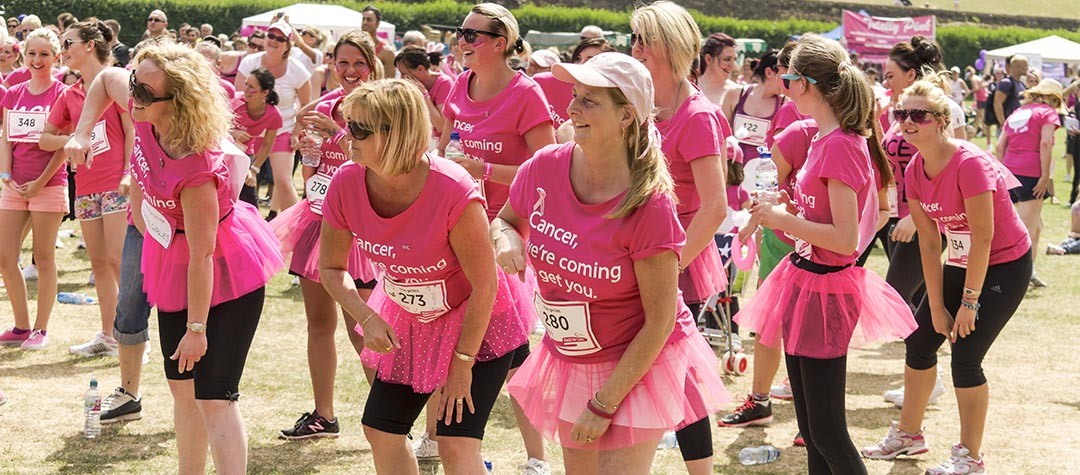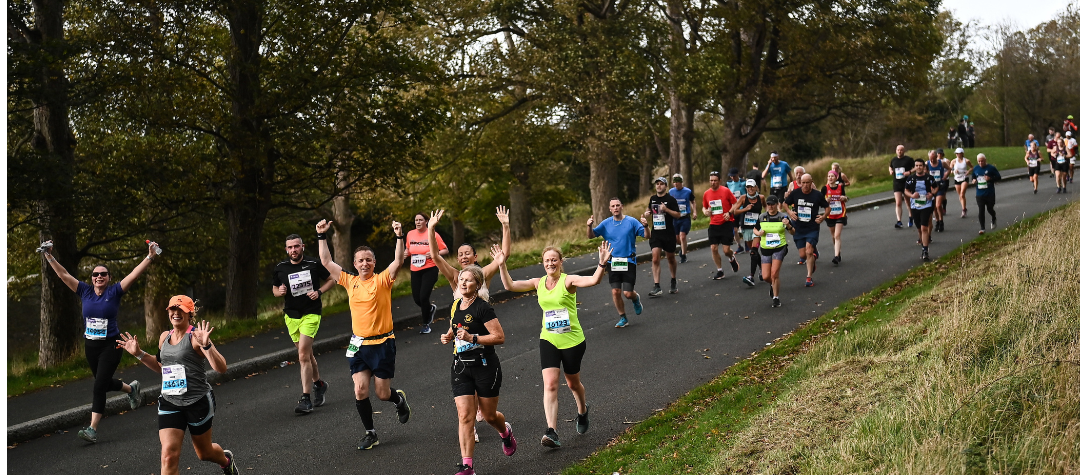Organised fundraising events are a great way for charities to collect lots of valuable donations, as well as getting their message out to the public. A group of lovely, like-minded people getting together to raise funds for a fantastic cause - what could be sweeter?
Organising an event might look easy on paper, however when you get down to the nitty-gritty details you could find that it’s more complicated than first thought. Never fear, this article aims to take you through, step by step, what to consider when organising an event for charity.
1. What is the aim?
What do you want to achieve with this event? It’s very important to sit down and establish a clear goal; are you looking for a large sum of donations to contribute to a new project? Or maybe just to increase the awareness of the charity? It’s alright to be ambitious but be realistic otherwise you might find that you’ve bitten off more than you can chew.
2. What’s your budget?
Once you have decided on what you want to achieve, you need to determine the budget for the event. The more you spend, the more spectacular an event you can put on. However, these costs will quickly eat into your profits so it’s important to be realistic and to not waste money.
Find places where you can cut costs, but not scrimp on quality. People are often happy to volunteer their time and experience for a worthy cause, and you may be able to secure discounts for various different elements of your event because the profits are all going to charity.
3. What’s the plan?
It’s time to brainstorm! Form a committee of like-minded people and ask yourselves the major questions: who will be attending and how many, where will it be held, what costs are you looking at, and of course, does it have a theme ? If you’re struggling for inspiration, check out our fundraising ideas & tips section for some suggestions. There’s an event to suit all budgets; it’s just having the confidence to see it through.
Start planning well in advance and create a schedule that must be kept to so that everything runs smoothly on the day. As soon as you have worked out all of the elements, delegate different chunks of the organising to reliable, hard-workers to ensure that everything is looked after.
4. Permission and insurance
You have the idea, you have the plan, but before you dive headfirst into organising, you need to consider what licenses, permits and insurances you might need. Rules and regulations are a massive part of life, and this is no different in the world of event planning.
Check you’re not treading on any toes and that you don’t need any special permissions to continue with your event. Also, with your event being open to the public, you may be required to have Public Liability Insurance; ensuring financial protection in the event of an accident or damage to property. If you are in doubt, speak to a legal advisor or your insurer to be sure of what you do and don’t need.
5. Safety
Safety is of the utmost importance at every fundraising event. Ask yourself the basic questions: are there any risks of guests being harmed by a potential hazard, is it possible for accidents to occur and what steps do you need to take to ensure everything is A-ok?
Consider fire safety, food safety, first aid, general hazards, that any children or disabilities are accounted for, and ultimately whether the place where you’re hosting your event is up to scratch. Benjamin Franklin once said: “By failing to prepare, you are preparing to fail” - the last thing you need is a fundraising nightmare on your hands!
6. When and where?
Plan? Check. Permission? Check. Now it’s time to look for a venue. Where will be large enough? Is there plenty of parking? How expensive will it be? There will be venues all over the place that can cater to large events and after a bit of searching, you are sure to find the one perfect for your needs.
With regards to selecting a date, it’s safe to say that people will be more inclined to attend an event that is taking place on a weekend and make sure that you publish the date well in advance. Many don’t have much time to socialise juggling busy careers and home lives, and it takes something really special to lure them away from their precious free time.
Be careful to check the dates of national holidays, you can either avoid them or make linking to a particular holiday your aim. Christmas around the corner? A winter wonderland themed gala dinner would go down a treat!
7. Entertainment
How are you going to keep your guests engaged? By making your evening as fun and interactive as possible, you are keeping everyone entertained and massively increasing the likelihood of further donations. Live bands, comedians, magicians, or circus performers are just a few ideas that will liven up the evening!
There are various further fundraising opportunities that could be the main attraction of your event. An absolute classic would be the charity auction. Gift baskets, travel packages and experiences are always fantastic auction items, but try to think outside the box to bring in the big bucks. It’s the really unique prizes that will win the biggest donations for your charity.
You may want to have one or two speeches during your event to reinforce its charitable intentions. If your charity has a supporting celebrity they would be a perfect candidate to ask to give a small speech to your guests, or even someone who the charity supports would be perfect to deliver its message.
8. Get it out there!
Set aside a chunk of your budget to publicise your event so that you can get as many people to attend as possible. Create posters and send out flyers to reach your target audience, as well as potentially getting in touch with local newspapers and radio stations.
Once you’ve cracked the branding for your event, be sure to make the most of the powerful tool that is social media . Send out email alerts, schedule events, even create a hashtag that is personal to your event if it’s appropriate! Be careful not to pester your audience with hundreds of notifications though, there can be a limit…
9. The day has arrived
Showtime! The time for organising has passed, now you need to make sure that your event runs smoothly. Double check that everyone who is working (staff, volunteers, speakers) is aware of the schedule and that they fully understand their roles. Think of any potential problems that you might have and plan accordingly; could you run out of wine? Will a change in the weather affect the event?
There might be the opportunity to create some last-minute profits. If you have any tickets left over you could sell them at a slight discount on the door and advertise this on social media. They won’t be worth anything after the event!
10. After the event
It’s very important to update your supporters in the days after your event with how successful it was. People want to know that their money is being put to good use and so you get in touch via email or letter to outline what you plan to do with all their lovely donations.
You could always use this opportunity to send out a follow-up survey. This will give you valuable market research as to what worked, what didn’t work and lots to think about for future events.
Finally, saying a big thank you to everyone that made the event possible is an absolute must. Volunteers that gave their time, companies that provided prizes or discounted services as well as everyone that donated to your cause. If you’re thinking of organising something similar in the future, you will be able to call on your army of supporters to back you all the way.
















